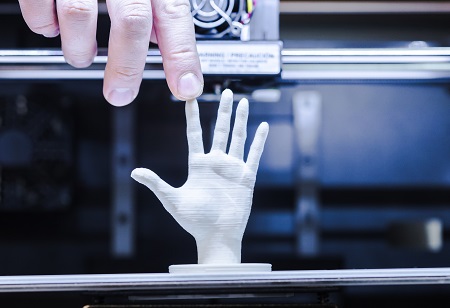
In a groundbreaking development that promises to revolutionize cancer research and treatment, biotechnology firm Carcinotech has announced the global commercialization of 3D-printed tumors. This innovative approach is set to redefine the way oncologists, researchers, and pharmaceutical companies study cancer, accelerating advancements in the field.
Edinburgh-based startup Carcinotech, established five years ago by founder Ishani Malhotra, is making waves in the field of cancer drug development. With an alarming prediction of 22 million cancer diagnoses by 2030, the company is addressing the challenges of accuracy, high costs, and outdated methods in drug manufacturing to ensure patients receive life-saving treatments.
Carcinotech's innovative approach involves globally commercializing 3D-printed tumors to pharmaceutical companies, pathologists, and surgeons, thus accelerating drug discovery and improving cancer treatment availability. The technology, known as Carcino3D, employs 3D bioprinting to replicate the patient's tumor microenvironment (TME), tailoring it to the specific cancer type of interest.
Using a single patient biopsy, Carcinotech generates over 400 printed tumors, revolutionizing the traditional three-month development timeline. The 3D-printed tumors, in contrast to conventional models, exhibit high reproducibility and compatibility with automated systems.
The company's breakthrough also lies in personalized medicine testing. By employing patient-specific cancer cells, Carcinotech aims to offer tailored treatment plans for better patient outcomes. Overcoming challenges in replicating the immune system within the tumor microenvironment, the company's immune-oncology-focused printed tumors stand out.
Carcinotech faces the hurdle of adopting its technology within the pharmaceutical and contract research organization sectors. Despite this, the startup has garnered recognition, with funding from grants and business competitions.
The significance of Carcinotech's technology is underscored by the high failure rate of drugs in clinical trials and the limitations of traditional testing methods. The company's approach not only holds potential to reduce animal testing but also offers solutions for oncology research, surgical planning, and even prosthetic development through 3D printing.
Carcinotech's 3D-printed micro-tumors represent a crucial step toward revolutionizing oncology and healthcare. By harnessing the power of 3D printing, the company aims to reshape cancer treatment and research, presenting a promising future for personalized medicine.
We use cookies to ensure you get the best experience on our website. Read more...